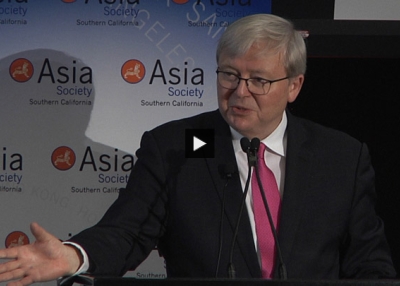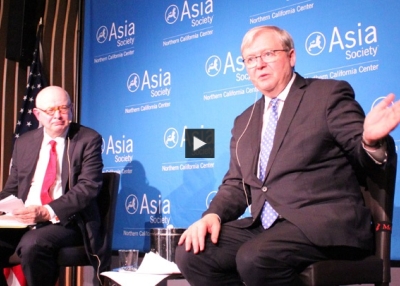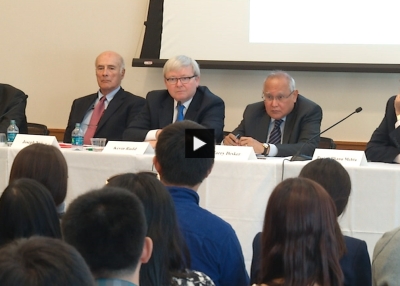The Rise of Asia and Its Impact on the Global Order
At the initiative launch event on September 21, 2015, President and Chief Executive of the Center for Policy Research Pratap Bhanu Mehta argues that Asian economic weakness poses a greater threat to global order than Asian economic strength, while Harvard Kennedy School professor Joseph S. Nye Jr. says the time has come for the United States to learn to share power with China, India, and other Asian countries. (1 min., 12 sec.) Watch the complete video from the launch event.
International orders have historically endured so long as great powers have consented to them. When one or several rising powers have challenged the existing order, the result has often been hegemonic war. History cannot escape the fact that hegemonic war, rather than peaceful negotiation, has forged nearly every international system in world history. Yet war is never inevitable. Today, as Asia emerges as a global center of economic gravity, as a theater for increasing security tensions, and as a source of decisive influence in global environmental change, the global order is already being reshaped.
The question that today’s policymakers must answer is whether the post-1945 system of international institutions can be reformed to accommodate Asia’s rise. The deftness with which policymakers inside and outside of the region are able to manage this structural transition will fundamentally affect the security of future generations. A secondary hazard, short of conflict, is that the international community proceeds without an intentional, negotiated order due to the absence of a thoughtful, agreed-upon alternative.
The Asia Society Policy Institute (ASPI) has launched an initiative to examine whether the current international order can be reformed to reflect new power realities—most notably China’s tremendous gain in power relative to the United States—while satisfying the primary sponsors of the present international order by ensuring that an altered system remains supportive of open societies and economies. ASPI has assembled a senior-level Policy Commission of former diplomatic practitioners and policy-oriented scholars from Asia, the U.S., Europe, Africa, and South America to develop a clear, practical, and prescriptive vision for the reform of the international order and to disseminate its recommendations among senior policymakers.
Policy Commission Members
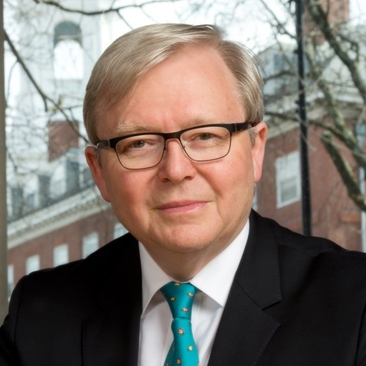
The Hon. Kevin Rudd (Policy Commission chairman) is President of the Asia Society Policy Institute. He served as Australia’s 26th Prime Minister and as Foreign Minister. As Chair of the Independent Commission on Multilateralism, Mr. Rudd is leading a review of the UN system. He is a Distinguished Fellow at Chatham House in London, a Distinguished Statesman with the Center for Strategic and International Studies in Washington, and a Distinguished Fellow at the Paulson Institute in Chicago. He is proficient in Mandarin Chinese, serves as a Visiting Professor at Tsinghua University in Beijing, and co-chairs the China Global Affairs Council of the World Economic Forum.
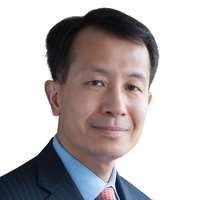
Jin-Yong Cai is Executive Vice President and CEO of the International Finance Corporation (IFC), a member of the World Bank Group and the largest global development institution focused on private sector development. Cai worked for the Goldman Sachs Group and Morgan Stanley’s. During his time at Morgan Stanley, he was seconded to the China International Capital Corporation, wihch has since become one of the country’s largest investment banks. Cai, who began his career in the World Bank Group in 1990, has a Ph.D. in economics from Boston University and a Bachelor of Science degree from Peking University.
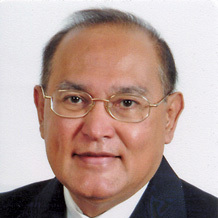
Barry Desker is a Distinguished Fellow at the S. Rajaratnam School of International Studies (RSIS), Nanyang Technological University. He formerly headed RSIS and the Institute of Defence and Strategic Studies from October 2000 to November 2014. He was the Chief Executive Officer of the Singapore Trade Development Board from 1994 to 2000 and was Singapore’s Ambassador to Indonesia from 1986 to 1993. Ambassador Desker is currently also the Non-Resident Ambassador of Singapore to the Holy See and Spain, and Chairman of Singapore Technologies Marine.
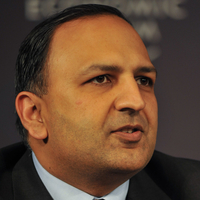
Pratap Bhanu Mehta is President and Chief Executive of the Center for Policy Research (CPR), and a political scientist who has taught at Harvard University, Jawaharlal Nehru University, and the New York University School of Law. Dr. Mehta has served on many central government committees, including India’s National Security Advisory Board, the Prime Minister of India’s National Knowledge Commission, and a Supreme Court-appointed committee on elections in Indian universities. He holds a B.A. (first class) in philosophy, politics, and economics from Oxford and a Ph.D. in politics from Princeton.
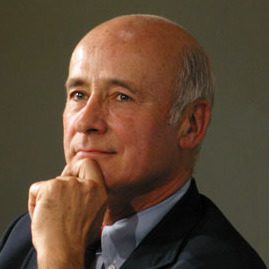
Joseph S. Nye Jr. is University Distinguished Service Professor and former Dean of Harvard’s Kennedy School of Government. He earned a PhD in political science from Harvard. He has served as Assistant Secretary of Defense for International Security Affairs, Chair of the National Intelligence Council, and Deputy Under Secretary of State for Security Assistance, Science and Technology. He is a fellow of the American Academy of Arts and Sciences, the British Academy, and the American Academy of Diplomacy. In a recent survey of international relations scholars, he was ranked as the most influential scholar on American foreign policy.

